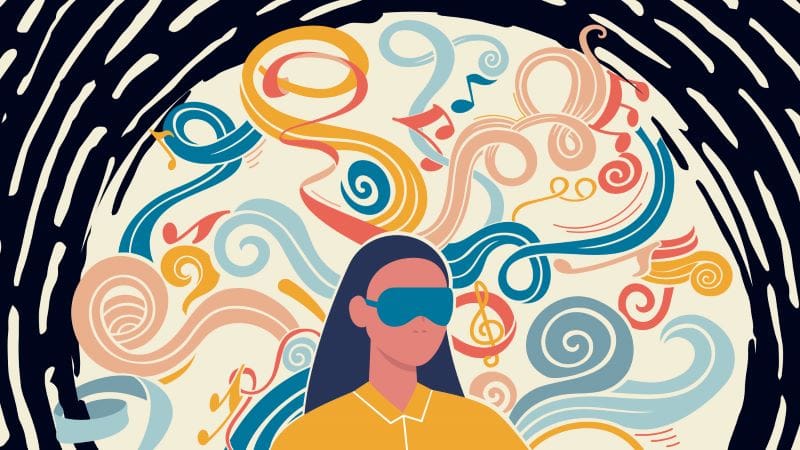What is Psychedelic Therapy?
Psychedelic therapy uses psychedelics or plant-medicine to treat mental illnesses such as addiction, depression, and anxiety as well as trauma. If that sounds insane to you, it’s actually one of the most promising, safe, and effective treatment modalities in psychology. Psychadelic therapy has shown unbelievable outcomes for patients particularly with depression and trauma, and is currently being studied by a number of leading medical institutions including Johns Hopkins.
So what are psychedelics, and why are they so powerful? Psychedelic drugs are a class of compounds that alter consciousness in similar ways and by similar mechanisms. They include psilocybin (found in “magic” mushrooms), LSD, and MDMA, among many others.
Many, but not all, psychedelic drugs come from plants. Some come from fungi (such as psilocybin). Others are made in a lab, most notably LSD (the building block of which also comes from a fungus) and MDMA. There is even a powerful psychedelic called Bufo Alvarius or 5-MeO-DMT found in the venomous secretions of a specific species of toad.
These compounds can produce a diverse range of effects including euphoria, a sense of well-being and belonging, and a sense of wonderment. However, if used improperly, they can also cause anxiety, confusion, and paranoia. The key to psychedelic therapy is environment and guidance. Psychedelics open you wide up, they change the way you see things and introduce you to a different side of yourself. If you’re doing that in an unsafe environment like a music festival, that can cause some anxiety and potentially create or retrigger existing trauma. However, done under the care of a professional trained in holding safe space for you to process, it can be an incredibly transformational experience.
Psych meds aren’t always effective and some come with many side effects. Psychedelic therapy offers a promising new paradigm which early research has demonstrated is remarkably safe and effective[1].
History of Psychedelic Therapy
Throughout history, cultures around the world have used psychedelic plants and fungi as a form of medicine for various diseases and conditions. Native cultures tended to address illnesses before they presented as physical symptoms. If a member of the tribe was feeling a bit “off,” they might recommend a ceremony to recenter themselves. This is vastly different from the world today, where we suppress and ignore discomforts until they turn into something we literally cannot ignore.
It is only recently that psychedelics entered Western medicine. Interest in psychedelics as a way to treat mental illnesses started in the 1950s when psychiatrists began studying psychedelics and using them in their practice. Pioneers like Alan Watts and Terrance McKenna and Ram Das began speaking and writing about psychedelics, and not soon after they began trickling into scientists labs to study.
The term “psychedelic” was coined by notable psychiatrist Dr. Humphrey Osmond, who pioneered psychedelic therapy by using LSD to treat patients suffering from alcoholism. From 1956 to 1960, Osmond and his colleague Dr. Abram Hoffer treated nearly 2,000 alcoholic patients with LSD. They reported that around 45% of their patients successfully quit drinking after a year [2,3]. Other psychiatrists found similar success using LSD in their practices [2].
Meanwhile, several clinical trials (most of them using LSD) found that psychedelics produced significant, lasting benefits in people with addictions and mood disorders. However, these early studies were poorly designed, lacked standardized tests, and were riddled with researcher bias, making it hard to draw firm conclusions from them [2]. There were even international conferences in which clinicians and researchers would gather and share their findings using LSD and other psychedelics.
But then things changed dramatically.
Psychedelic research and therapy came to an abrupt halt with the passage of the Controlled Substances Act in 1970 as part of the war on drugs. The legislation placed LSD, psilocybin, and most other psychedelics under the strictest drug regulations, Schedule I [4]. Only recently has an interest in the potential benefits of psychedelics been revived to its original fervor.
Psychedelic Therapy Research
While the trials of the 1950s and 1960s suffered from poor design and other flaws, recent research has explored the benefits of psychedelic drug therapy while maintaining scientific rigor. Within the last 15 years, many clinical trials have reported promising findings in what is sometimes referred to as the “second wave” of psychedelic research.
Let’s take a look at what this research shows.
Anxiety and Depression
Anxiety disorders are the most common type of mental illness, affecting up to 20% of adults each year [5].
Psilocybin and other psychedelics may work by mimicking the actions of serotonin, a neurotransmitter intimately involved in mood. Serotonin activity is often decreased in people with anxiety and depression and psychedelic therapy may help restore this imbalance [6].
Multiple trials have found psilocybin to be effective in improving depression and anxiety. One study even found that it was just as effective as Lexapro, one of the most common drugs prescribed to treat depression and anxiety [7,8].
Remarkably, only a few sessions were needed to achieve these effects, and improvements lasted for months afterward.
Another area psilocybin is being explored is in patients with terminal illnesses. Unsurprisingly, these patients often experience intense anxiety and depression. In patients with life-threatening cancer, one psychedelic therapy session with psilocybin significantly improved symptoms of depression and anxiety about dying and increased feelings of optimism. Some patients claimed their experience completely removed their fear of death [9]. Similar results have been found in another study using LSD [10].
A synthetic, and currently the only legal, psychedelic drug called ketamine has also been found to be effective for severely depressed patients who don’t respond to conventional treatments. However, its effects wear off after a month [11].
Larger randomized, controlled trials are still needed to confirm the benefits of psilocybin and other psychedelics in improving anxiety and depression.
Drug and Alcohol Addiction
Psychedelic drugs are being explored for addiction disorders as disrupted serotonin activity is believed to play a role in drug and alcohol addiction [12]. A recent pilot trial found psilocybin reduced alcohol cravings and helped people abstain from drinking, with effects lasting up to 36 weeks [13]. Another pilot trial found that 80% of patients quit smoking after three sessions of therapy with psilocybin [14]. Both studies were small studies that lacked controls but are nonetheless encouraging.
Most of the studies with LSD and alcohol addiction from the 50s and 60s were greatly flawed. However, a meta-analysis of only randomized, controlled trials found LSD helpful in improving alcohol addiction [15].
Post-traumatic Stress Disorder
Post-traumatic stress disorder (PTSD) is a mental disorder that occurs in people who see or experience a shocking or terrifying event. PTSD is poorly understood, and the majority of patients don’t respond well to drug treatment.
MDMA (also referred to as “ecstasy” or “molly” by recreational users) has shown great promise when it comes to treating PTSD.
Multiple clinical trials have found that MDMA-assisted psychotherapy is incredibly effective in reducing symptoms of PTSD and is well-tolerated [16].
Because of these results, MDMA has been given breakthrough therapy designation by the FDA which greatly speeds up the approval process for its use as a drug treatment.
How Do Psychedelics Work?
In the US, psychedelic drugs are yet to be approved for the treatment of any mental illness. This means psychedelic therapy is only performed in a clinical trial with carefully selected patients. In these trials, patients undergo an initial therapy session to help prepare them for the following sessions with the psychedelic drug.
According to studies, LSD and psilocybin normally require up to three therapy sessions. For ketamine, it can be anywhere from one to 12 sessions, and for MDMA, it is usually three sessions [17].
During the session, trained mental health/psychedelic professionals closely monitor the patient and help them process the experience and their emotions. Patients are told to pay attention to their thoughts and are encouraged to discuss them with the mental health professional assisting them. Listening to music is also encouraged.
After this stage, the patient will meet back with their mental health professional and perform integrative sessions that help the patient make sense of the experience and incorporate any insight or knowledge they gained into their daily lives.
Risks
While psychedelic therapy is very safe if correctly administered in the right setting and with the appropriate dosage, there are possible negative effects that patients may experience.
These include [17]:
- Headaches
- Nausea
- Loss of appetite
- Weakness
- Increase in heart rate and blood pressure
- Confusion and disorientation
- Anxiety
It’s important to note these are short-term effects and should stop after the drug is cleared from the body.Serious adverse events are extremely rare.
The Future of Psychedelic Therapy
It’s important to note that many of the trials on psychedelic therapy are small and larger controlled trials are still necessary to confirm their benefits. However, initial findings are very exciting and show that psychedelic therapy has beneficial and lasting positive mental health benefits, paving the way for future research.
At least at this moment, it looks promising that the use of psychedelics will be a major paradigm change, and a significant part of treatment protocols for mental health issues in the future.
References:
- https://www.ncbi.nlm.nih.gov/pmc/articles/PMC5593510/
- https://pubmed.ncbi.nlm.nih.gov/28443617/
- https://www.ncbi.nlm.nih.gov/pmc/articles/PMC381240/
- https://pubmed.ncbi.nlm.nih.gov/29476779/
- https://www.ncbi.nlm.nih.gov/pmc/articles/PMC4610617
- https://www.ncbi.nlm.nih.gov/pmc/articles/PMC4293164/
- https://pubmed.ncbi.nlm.nih.gov/31931272/
- https://pubmed.ncbi.nlm.nih.gov/33852780/
- https://pubmed.ncbi.nlm.nih.gov/27909165/
- https://www.ncbi.nlm.nih.gov/pmc/articles/PMC4086777/
- https://www.ncbi.nlm.nih.gov/pmc/articles/PMC6767816/
- https://www.ncbi.nlm.nih.gov/pmc/articles/PMC6041963/
- https://pubmed.ncbi.nlm.nih.gov/25586396/
- https://pubmed.ncbi.nlm.nih.gov/25213996/
- https://pubmed.ncbi.nlm.nih.gov/22406913/
- https://pubmed.ncbi.nlm.nih.gov/31065731/
- https://www.ncbi.nlm.nih.gov/pmc/articles/PMC6041963/





